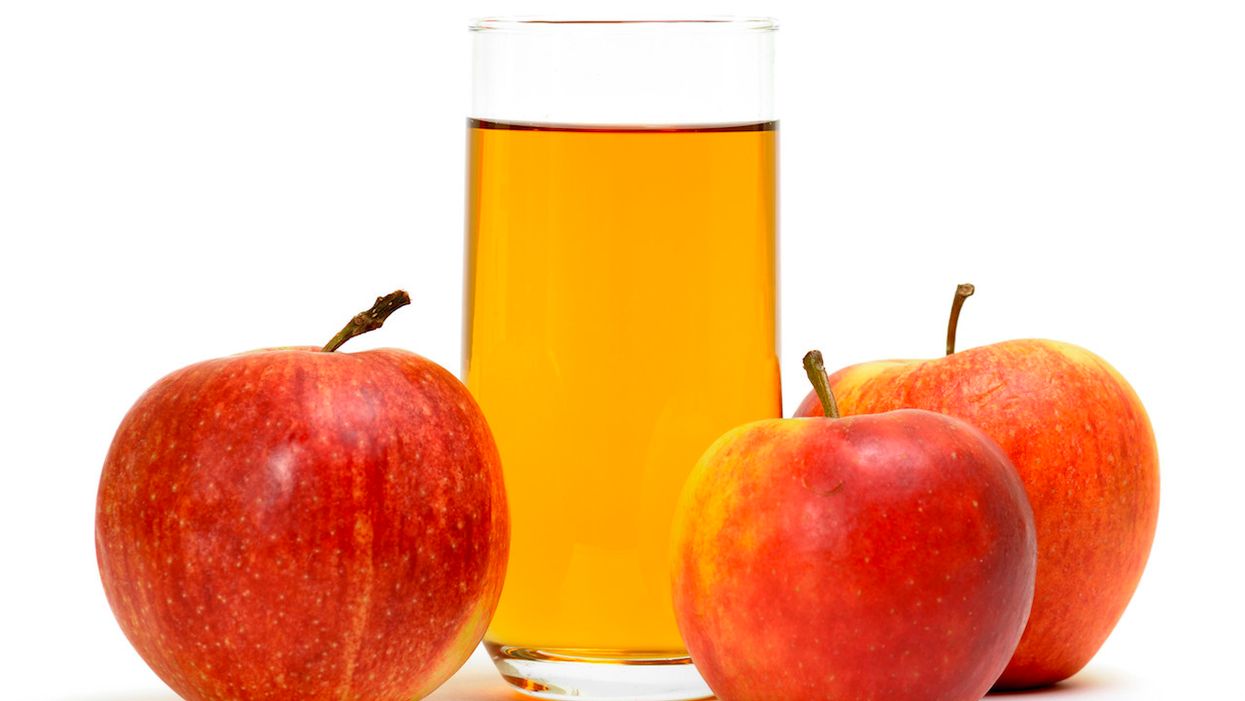
Unkel/ullstein bild via Getty Images

Consumer Reports tested 45 popular brands for mercury, lead, cadmium, and inorganic arsenic
Researchers are concerned after 21 popular fruit juices and juice blends were found to contain concerning levels of heavy metals, including inorganic arsenic, lead, and cadmium.
"In some cases, drinking just 4 ounces a day — or half a cup — is enough to raise concern," James Dickerson, Consumer Report's chief scientific officer, said in the report.
Scientists tested apple, pear, grape, and fruit blends from national, store, and private labels sold in stores across the country. Researchers purchased three samples of each product tested.
They focused on the levels of mercury, lead, cadmium, and inorganic arsenic, which are known toxins that can pose serious health risks, especially in children.
The highest levels of metals were found in grape juices.
All of the 45 products tested showed a measurable level of at least one of the heavy metals tested.
Concerning levels of cadmium, arsenic, and/or lead were found in 21 products, five of those products were juice boxes or pouches that are marketed for kids. None of the juices tested showed significant levels of mercury.
Organic juices didn't show lower levels of heavy metals than conventional products.
The U.S. Food and Drug Administration guideline for lead in juice is 50 parts per billion. Consumer Reports' researchers believe that guideline should be lower.
The FDA has not set a guideline for inorganic arsenic. It proposed a limit of 10 ppb in apple juice five years ago, the standard set for drinking water. Consumer Reports has recommended that the FDA set a cutoff of 3 ppb, but it's unclear when or if the FDA will finalize the standard.
No limits for cadmium have been set or proposed by the FDA, according to the report, but Consumer Reports supports a limit of 1 ppb.
The brands tested were 365 Everyday Value (Whole Foods), Apple & Eve, Big Win (Rite Aid), Capri Sun, Clover Valley (Dollar General), Great Value (Walmart), Gerber, Good2Grow, Gold Emblem (CVS), Goya, Honest Kids, Juicy Juice, Looza, Market Pantry (Target), Minute Maid, Mott's, Nature's Own, Ocean Spray, Old Orchard, R.W. Knudsen, Simply Balanced (Target), Trader Joe's, Tree Top, and Welch's.
Children who are exposed to heavy metals are at greater risk for developmental problems, lowered IQ, behavioral problems, type 2 diabetes, cancer, and other health issues, according to medical experts. The more often a child is exposed, the greater the risk.
Exposure may be less harmful for adults but health problems can still occur, including various types of cancer, cognitive issues, reproductive problems, and others.
"In the course of a lifetime, the average person will come into contact with these metals many times, from many sources," said Tunde Akinleye, a chemist for Consumer Reports' Food Safety Division. "We're exposed to these metals so frequently during our lives that it's vital to limit exposures early on."
Lead exposure has been linked to high blood pressure, heart disease, and fertility problems. Arsenic has also been linked to heart disease. Cadmium has shown an increased risk for bone damage and kidney disease.
Researchers found "comparatively high levels" of lead in Welch's 100% Juice With Antioxidant Superberry and Welch's Grape Juice, Concord Grape. The average lead levels were higher than 5 ppb.
"All Welch's juice is safe and strictly complies with all applicable legal requirements. Naturally occurring elements such as lead and arsenic are present in the soil, air, and water. Therefore, they are also found in very low, harmless levels in many fruits and vegetables," a company spokesperson told the magazine.
Researchers found an average of 15.4 ppb of inorganic arsenic in Trader Joe's Fresh Pressed Apple Juice.
A Trader Joe's spokesperson told Consumer Reports it would "investigate your findings, as [we are] always ready to take whatever action is necessary to ensure the safety and quality of our products."
The FDA responded to the Consumer Reports' findings:
"We know there is more work to be done to reduce these elements in our food supply and we place a high priority on reducing exposure among infants and children, as the very young are more susceptible to their potential adverse health effects. We welcome the data provided by Consumer Reports and will review it in its entirety as part of our larger, comprehensive effort to reduce toxic element exposure. The findings of Consumer Reports underscore the progress that has been made in reducing the amounts of these elements in fruit juices over the past several years. We are encouraged by this progress and believe that FDA oversight and industry responsiveness will continue to drive innovation leading to reductions in exposure."
In a nationwide survey of 3,002 parents of children age 3 or younger, Consumer Reports found that more than 74 percent said their kids drink fruit juice at least once a day.